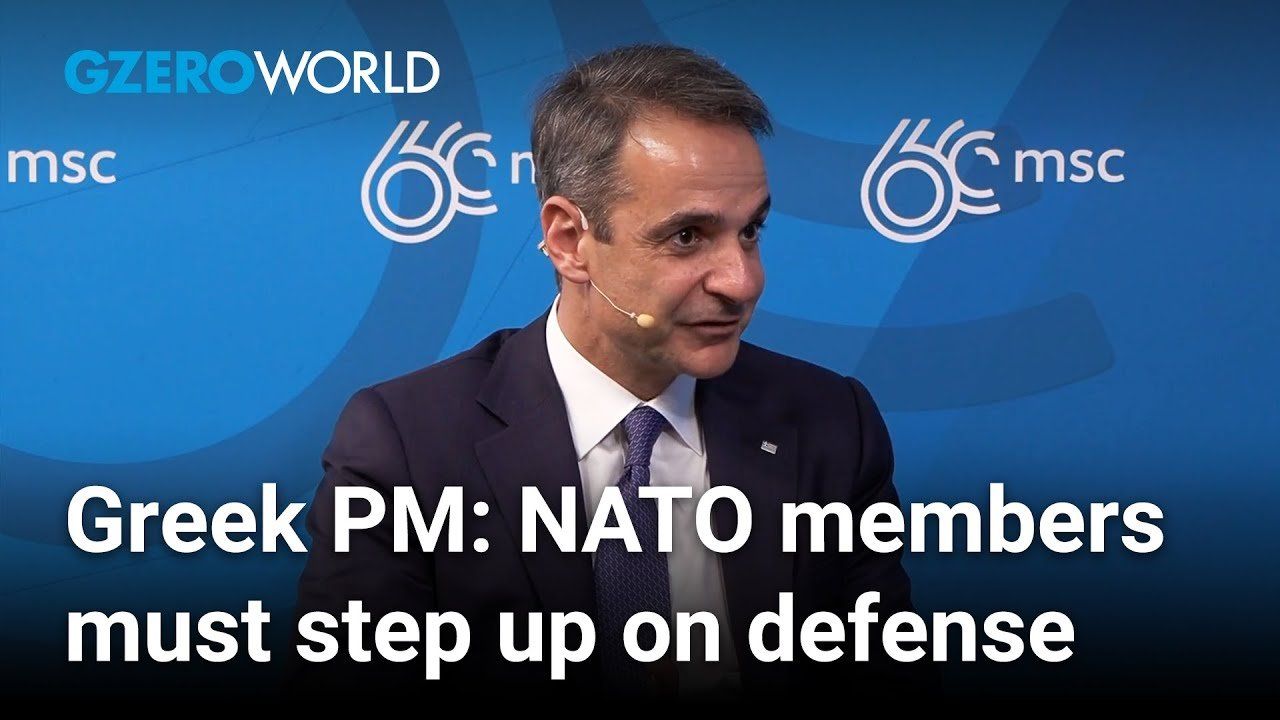GZERO World with Ian Bremmer
Greece's PM on NATO, Navalny, and the wake-up call to Europe

Greece's PM on NATO, Navalny, and the wake-up call to Europe | GZERO World

Greece, the world’s oldest democracy, is undergoing a major digital, economic, and social transformation era. Ian Bremmer sat down with Greek Prime Minister Kyriakos Mitsotakis on the sidelines of the Munich Security Conference to discuss global security, the threat of AI in elections, and Greece’s landmark ruling allowing same-sex couples to marry.
With the two-year anniversary of Russia’s invasion of Ukraine looming large, Mitsotakis stressed the importance of continuing to send financial and military aid to Kyiv and for Europe to increase its own defense spending. NATO allies have committed to spending at least 2% of their GDP on defense, but only 18 of the 31 NATO countries currently meet this goal. Mitsotakis says it’s high time for all NATO countries to step up.“We do our part as Greece, we spend more than 3% of our GDP on defense,” Kyriakos emphasized, “Just taking a look at what's happening in Ukraine, we cannot afford the same risks.”
Kyriakos also explains why it was important for Greece to participate in the unveiling of a major new tech accord aimed at combating AI-generated election misinformation at the conference and why his center-right government pushed hard to pass the recent landmark LGBTQ+ rights bill granting marital and adoption rights to same-sex couples.In this Quick Take, Ian Bremmer reacts to President Trump’s State of the Union address, calling it “a rehashing of the greatest hits” with little new policy direction.
Small business hiring surged 7% above the 2024 average in December, led by a surprise rally in retail. But with uncertainty still historically high and mounting concerns over tariffs, can this momentum survive 2026? Explore the data behind the resilience of the US small business sector. Get the latest economic insights from Bank of America Institute.